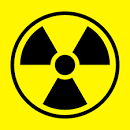Radiation can enter the water supply due to both natural and man-made sources.
Small traces of radioactivity are found in nearly all drinking water, but many people are concerned about the potential dangers of potential pollutants from nuclear energy plants, laboratories, and other sources.

